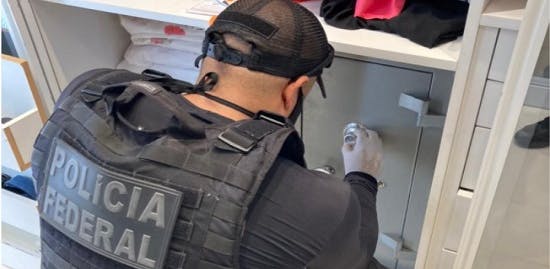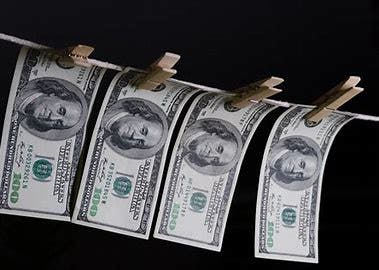Influencers and Gambling Games
Police Operations Exposing the Relationship Between Digital Influencers and Criminal Money Laundering Schemes Through Illegal Gambling and Raffles
The Lottery House
tags:
bet
controversy

Money Laundering and Controversies on Social Media
In recent years, social media has become a fertile ground for the growth of various professions, including that of digital influencers. With millions of followers, these individuals are able to reach a vast and engaged audience, often being hired to promote products and services. However, the growing power of influencers has also caught the attention of criminal organizations, which see these public figures as an opportunity to mask illicit activities such as money laundering.
Recently, a series of police operations in various Brazilian states have brought to light the dangerous connection between digital influencers, illegal raffles, and organized crime. With arrests made in Bahia, Goiás, and Ceará, investigations revealed a scheme that moved hundreds of millions of reais through fraudulent draws, where the prizes were never actually delivered to the winners, who often did not even exist.
In this article, we will explore the legal developments and the impact on the image of the involved digital influencers, in addition to analyzing how these money laundering schemes work and what the implications are for the future of online gambling and public image on social media.
The Rise of Influencers and the Temptation of Illicit Partnerships

Digital influencers have become increasingly relevant in modern society, with the power to shape opinions and influence behaviors. Companies and brands, recognizing this potential, often hire them to promote products and services, which can range from clothing and cosmetics to financial investments and, as seen recently, gambling games.
However, not all partnerships are legitimate. The operation that led to the arrest of the Bahian influencer Ramhon Dias and the raffle organizer José Roberto, known as Nanam Premiações, exposed a criminal network that used influencers to promote illegal raffles. According to investigations, these draws were a front to launder drug trafficking money, with fake prizes and nonexistent winners.
The director of the Department for the Repression of Corruption and Organized Crime (Draco), Márcia Pereira, revealed that the scheme moved around R$ 500 million. The strategy was simple: influencers promoted the raffles on their social media, attracting thousands of participants. However, the announced prizes, which included luxury cars and large sums of money, were never delivered, and the winners were actually fictitious profiles.
The Role of Social Media in Propagating Criminal Schemes

Social media has been fundamental in amplifying these schemes. With the ability to reach millions of people in seconds, platforms like Instagram and YouTube have become powerful tools for the dissemination of fraud. Influencers, often perceived as trustworthy figures, end up being used to legitimize these illicit practices.
In the specific case of Ramhon Dias and Nanam Premiações, both maintained highly engaged profiles with thousands of followers. The trust placed by this audience was exploited to promote illegal raffles, which at first glance seemed to be legitimate opportunities to win valuable prizes. The impact of these actions is devastating, both for the victims of the fraud and for the influencers' own credibility, which ends up tarnished by criminal associations.
The operation also revealed the typical ostentation of this type of crime. In the suspects' homes, luxury cars, expensive watches, firearms, and large amounts of cash were seized. This suggests that the profits from illegal raffles were significant, allowing those involved to maintain an extravagant lifestyle.
Gambling and Money Laundering: A Historical Relationship

Although illegal raffles promoted by influencers are a relatively new phenomenon, the relationship between gambling and money laundering is quite old. Historically, gambling has always been seen as an effective way to "clean" money obtained from criminal activities. With the rise of online betting, this process has become even more sophisticated and harder to trace.
Online sports betting, recently regulated in Brazil, has opened new possibilities for money laundering. Betting companies, known as "bets", hire influencers to promote their services, often exceeding the boundaries of legality. In another recent case, the "Integration" operation arrested influencer Deolane Bezerra and her mother on suspicion of involvement in money laundering schemes through illegal betting.
Authorities discovered that the companies initially investigated operated in the "jogo do bicho" (an illegal lottery in Brazil), later migrating to the online betting market, a more regulated area and therefore harder to monitor for illegal schemes. This allowed these organizations to continue their criminal activities under a facade of legality.
The Responsibility of Influencers and Legal Consequences
With the rise of the power of digital influencers comes an increasing responsibility. Promoting products and services without checking the legality or morality of these businesses can have serious consequences, both legal and reputational for these individuals. In the case of Ramhon Dias and Nanam Premiações, the association with criminal activities led to imprisonment and a huge negative impact on the public image of these influencers.
In addition to the immediate legal consequences, such as arrests and asset seizures, influencers involved in money laundering schemes face the loss of credibility and the distrust of their followers. Trust, the foundation of any influencer, can be irreparably damaged when they get involved in illicit activities.
Ramhon Dias' lawyer defended his client, claiming that he was being unfairly persecuted and that his activities as an influencer were legitimate. However, the evidence gathered by the police, including the ostentation of luxury goods incompatible with his declared income, suggests that there is more behind these accusations.
Conclusion: The Future of Influencers and Online Betting

The relationship between digital influencers and money laundering schemes through illegal betting and raffles raises important questions about regulation and ethics on social networks. As the networks continue to grow and influence society in unprecedented ways, the need for greater vigilance and responsibility also increases.
Recent police operations, which resulted in the arrest of influencers like Ramhon Dias and Deolane Bezerra, are a clear sign that authorities are aware of these new forms of organized crime. However, influencers themselves need to take an active role in verifying the companies and products they promote.
For the public, the case serves as a warning about the risks of blindly trusting public figures. Social networks, which often present an idealized image of reality, can be used to mask criminal activities, and followers should be critical and cautious when participating in promotions and raffles.
The future of digital influencers is closely linked to transparency and ethics. Those who do not follow these principles may face not only the loss of followers but also severe legal consequences. For online gambling platforms, stricter regulation and cooperation with authorities are essential to prevent their activities from being used for illicit purposes.
In an increasingly connected world, the line between legal and illegal can become blurred, but it is up to authorities, influencers, and the public to keep this line clear and inviolate.